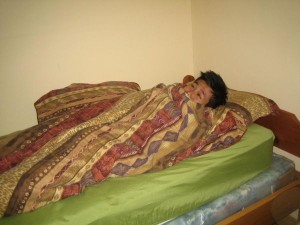Delirium is defined by an abrupt change in the mental status or abrupt confusion that arises over hours to days. It is important to note that there are 2 forms of delirium.
- Hyperactive – overactivity which includes restlessness and agitation
- Hypoactive – underactivity which involves sleepiness and difficulty in response
Take note that both types might arise together.
What are the causes?
Some of the factors that might cause delirium include the following:
- Lack of sleep
- Certain medications
- Changes in the environment
- Hormonal issues such as hyperthyroidism or hypothyroidism
- Lack of oxygen to the tissues
- Pain
- Kidney or liver injury/failure
Promote sleep and rest by reducing the level of noise and distraction. - Infections such as sepsis or pneumonia
- Dehydration
- Overdose or toxicity from alcohol or prohibited drugs
What are the signs?
The indications of the hyperactive form include:
- Restlessness
- Anxiety
- Hallucinations
- Abrupt changes in emotion
As for the hypoactive form, it can cause the following:
- Apathy
- Flat affect
- Laziness
- Withdrawal
- Diminished level of responsiveness
Management of delirium
It is important to note that delirium is typically brought about by other health ailments, thus it is vital to manage these conditions first.
Some of the measures to manage delirium include focusing on the environment of the individual. An individual experiencing delirium should do best in an area with a quiet setting.
The following measures can greatly help:
- Promote sleep and rest by reducing the level of noise and distraction
- Reassure the individual and assist him/her in understanding the environment and explain what is happening.
- Bring along familiar objects from home to provide comfort to the individual in an unfamiliar environment. In addition, soothing music can also help.
- Provide the individual with beverages if needed throughout the day.
- Encourage the individual to move out of bed if safe to do so.
- Make sure that the individual is oriented by talking about current events and news from family for mental stimulation.
- Ensure that the individual is awake during the day and exposed to sunlight.
- Make sure that the individual gets adequate sleep at night without any interruptions.

